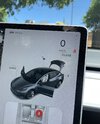- Joined
- 29 January 2006
- Posts
- 7,226
- Reactions
- 4,468
This is a long repeat of your previous irrelevances.Average age 10 years = average lifespan roughly double that so 20 years.
How many owners it has during that time is largely irrelevant to the fact that a car is on the roads for ~20 years from sale to scrap on average. It's irrelevant who owns it so long as it's still being used as a car by someone.
That figure hasn't really changed in a long time now. Hence it took 20 years to get rid of leaded and subsequently lead replacement petrol use down to a point where selling it was no longer viable and that's despite massive improvement in cars during that time. Fuel injection, disc brakes all round, power steering, air-conditioning, air bags and other more passive safety features all went from something that only rich people had to something that even the cheapest cars came with as standard during that time but it didn't lead to the old ones being scrapped any faster.
If you can't buy an ICE vehicle beyond 2030 then they turn into dinosaurs.
Also, by 2030 we will have a burgeoning NEV used car market. And 10 years later again it will be larger still so it's difficult to conceive any viable market for used ICE. An implication of this is that ICE vehicles will have a negligible resale value.






